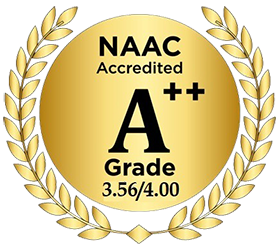Through seven eventful decades of its history, Gandhi Memorial National College, Ambala Cantt has celebrated the quest for expanding landscapes of learning and critical thinking. Today, this college is recognised as a premier institution of higher learning that nurtures intellectual and academic striving, vibrant curricular activities, outreach initiatives and civic engagement. The college offers a unique combination of resources where community of inspired faculty and talented students learn and grow together to share the dynamic energy field. It is a place not only of teaching but collaborated scholarship reinforcing a very special interaction between students and faculty.
After partition, a great visionary and philanthropist Sh. Jaswant Rai with other eminent associates planted the seeds of D.A.V. College, Rawalpindi at Ambala which flourished into G.M.N. College in 1948. Having had a modest beginning in a building with thatched roofs, today the college has a whole range of infrastructural facilities such as high-tech seminar rooms, Smart Class Rooms, Arts, Science and Commerce block, well-equipped laboratories, departmental rooms equiped with computers and internet facilities, gymnasium, fully automated library, E-library, sprawling sports fields. The college has become a byword for academic and extra curricular achievements. The dynamic, enlightened and supportive Managing Committee comprising of members from industry, medicine, academic and administration is constantly engaged in taking the college to newer heights of excellence. Its alumni occupy distinguished positions in almost all spheres of society – Government, Banking, Finance, Academics, Sports, Armed Forces, Business and Media. The college believes in the motto “Be the First and be with the First”.
Strength, Weakness, Opportunity and Challenges (SWOC)
Institutional Strength
- Sprawling, beautiful campus with ample green coverage.
- Locational advantage of being situated near National Highway and Railway Station.
- Qualified teaching staff.
- Well-maintained infrastructure.
- Installed a solar power grid.
- Well-equipped laboratories and a fully digitalized library.
- Activities of the NSS & NCC and performance in cultural and sports.
Institutional Weakness
- Constraints on the construction of buildings due to nearness of army cantonment.
- Online admission system needs to be strengthened.
- Enrolment of students in some of the courses below the sanctioned capacity.
- Low student's aptitude towards the classroom.
Institutional Opportunity
- Opening of courses relating to national security and national defence.
- Career advancement in sports.
- Opening of more skill-oriented courses.
- Promotion of research especially collaborative research.
Institutional Challenge
- Increasing enrolment.
- Improving classroom attendance.
- Diversification of the courses of study including job oriented courses.


